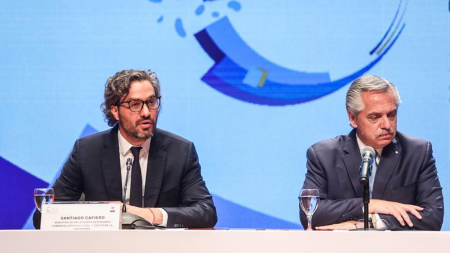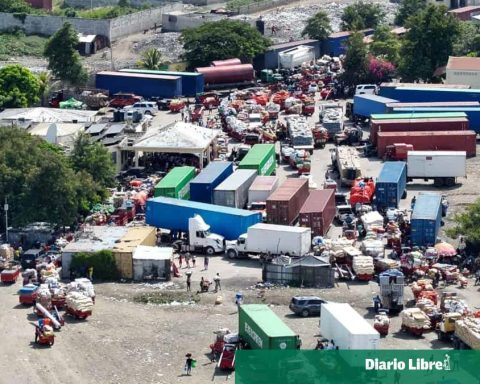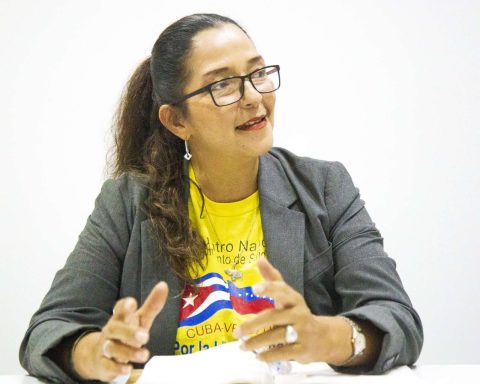The Argentine government affirmed this Tuesday that it is willing to grant Argentine citizenship to the Nicaraguan writers Sergio Ramírez and Gioconda Belli, and to “all those who are suffering from what is happening” in that country, where the Daniel Ortega’s administration withdrew the nationality of 92 people and charged them with the crime of “treason against the homeland.”
“The Argentine government is willing to grant Argentine citizenship to @sergioramirezm @GiocondaBelliP and all those who are suffering from what is happening in Nicaragua,” presidential spokeswoman Gabriela Cerruti said Tuesday on her Twitter account.
The Argentine government is willing to grant Argentine citizenship to @sergioramirezm @GiocondaBelliP and all those who are suffering from what is happening in Nicaragua. https://t.co/nBaibxcjJT
— Gabriela Cerruti (@gabicerru) February 21, 2023
For his part, Chancellor santiago cafiero ratified -in statements made to FM Radio Con Vos-: “If Sergio Ramírez asks for Argentine citizenship, we give it to him. A simple procedure begins and Argentina is in a position to do so.”
In this sense, Cafiero explained that “it is a personal process” that individuals must initiate.
“Argentina is in a position to give them citizenship. The applicant has to start the process, which is very simple, at the Argentine Embassy,” said the head of the Palacio San Martín.

He also indicated: “We have discussed it with the president (Alberto Fernández) when we saw the events in Nicaragua.”
In addition, he recalled that Argentina “has always marked the need for the country to once again respect human rights.”
He also noted that a United Nations commission was formed “to study the violation of human rights” in that country and that Argentina “has condemned the persecution suffered by many Nicaraguans.”

Last week, the Nicaraguan justice system withdrew the nationality of writers and former Sandinista militants Sergio Ramírez and Gioconda Belli, as well as 92 other people, considering them guilty of “treason,” the local and international press reported.
The decision was notified by the president of the Court of Appeals of Managua, Ernesto Rodríguez.
In addition to removing their nationality, the court ordered that all properties in the names of those affected be seized.
Ramírez, who is 80 years old and also has Spanish nationality, was part of the board of the “national reconstruction government.” that was created after the triumph of the Sandinista revolution, in 1979. The coordinator of that board was the current president, Daniel Ortega.
After the 1984 elections, Nicaragua was governed in 1985-1990 by Ortega as president and Ramírez as vice president, until the opposition Violeta Barrios de Chamorro, who had also been a member of the 1979 revolutionary junta, won in the following elections.
In 1990-95, Ramírez was head of the Sandinista caucus in the National Assembly (parliament) and in 1996 he was a candidate for president for the Movimiento Renovador Sandinista, a splinter of the Sandinista National Liberation Front (FSLN) that Ortega remained in charge of.
In statements in recent days, Ramírez called for a democratic “transition” without “bloody confrontation” in his country, according to an interview published in the Spanish newspaper El País.

“The first thing I would like to see not be repeated in Nicaragua is a bloody confrontation, that a confrontation would have to take place in the country to get out of another dictatorship. That horrifies me.”Ramirez stated.
“I know that whoever rises to power through arms ends up being a tyrant again and I am going to fight so that this does not happen,” insisted the writer, who was awarded the Cervantes Prize for Literature, and defended a “transition towards democracy.” in which “all Nicaraguans can participate, including those in power.”
Spain offered to grant nationality to all these exiles, to prevent them from being stateless.
Meanwhile, the Secretary General of the United Nations, António Guterres, declared himself “alarmed” by the Nicaraguan measure, and the United States and Chile criticized those initiatives.
During the interview with El País, Ramírez called the measure “absurd” and stressed that “the idea that they can take away your country is absurd, it makes no sense, no legal sense.” However, he was hopeful that he would be able to return to Nicaragua.
“I am barely 80 years old,” he joked and added: “I am sure that I will see the democratic change in Nicaragua, that I will return to my country, I would like to be in those moments of change, that is where I would like to be and be as a writer, not as a politician.”


















